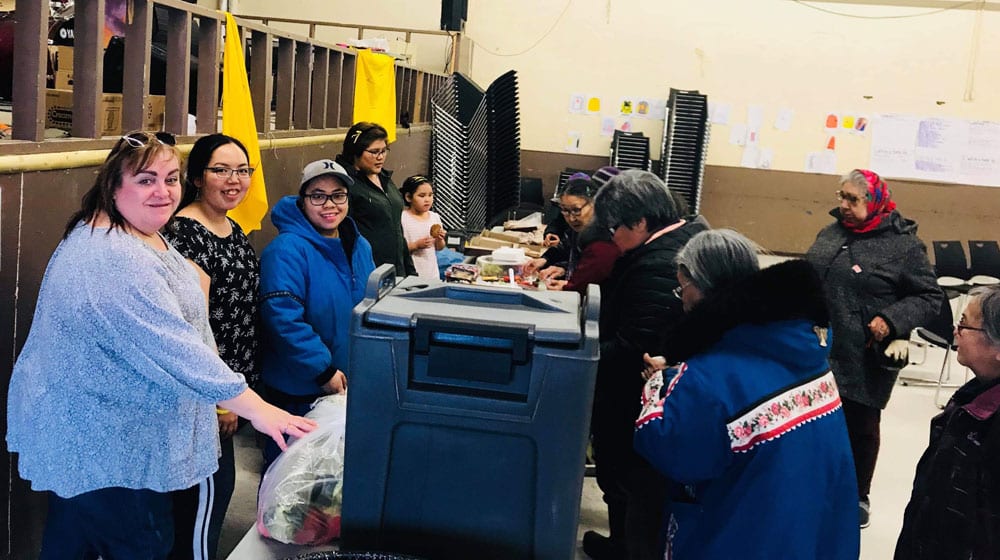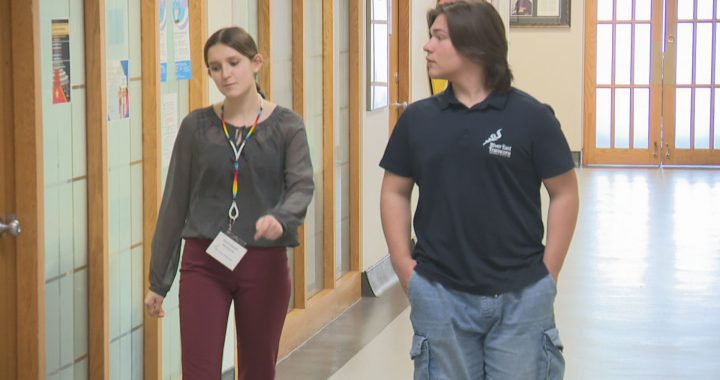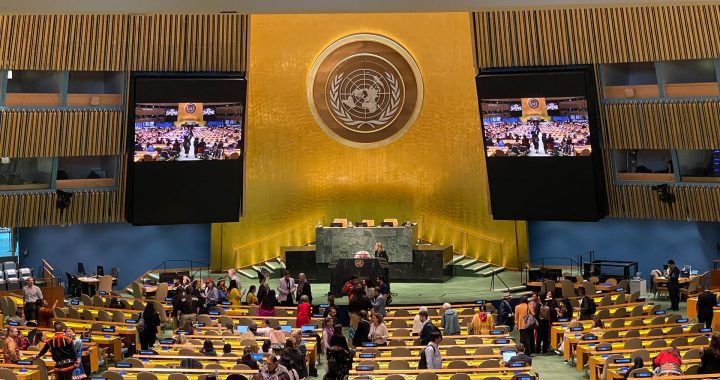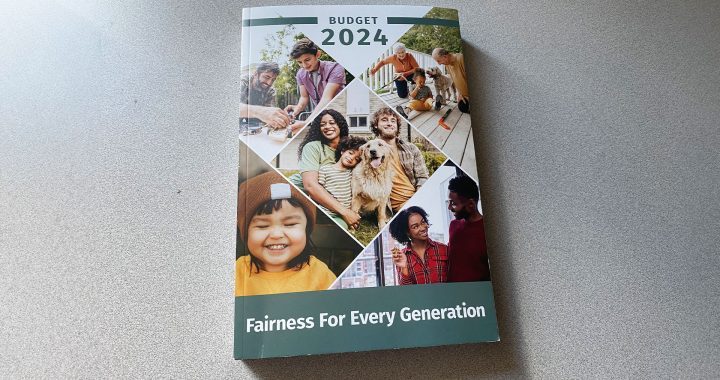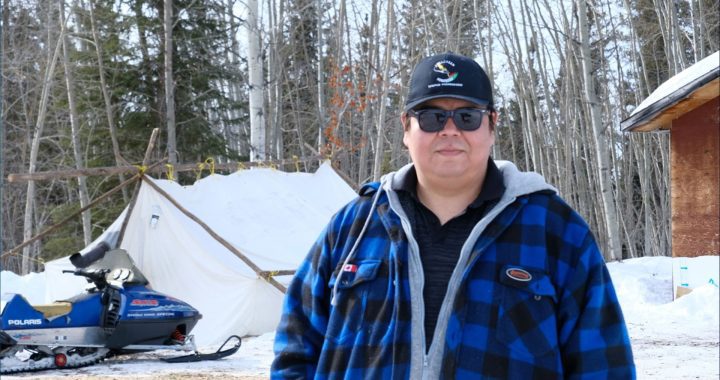Mumilaaq Qaqqaq says she doesn’t speak for all Inuit, or all northerners for that matter – but it seems she is expected to do so on many occasions by those who don’t live in Nunavut.
She recalls an instance where a professor at Fleming College in Peterborough, Ont. didn’t properly obtain her consent to share personal information and complex subject matter of Qaqqaq’s.
The professor attempted to break the ice on the first day back to school by loftily bragging about student accomplishments from the summer.
In a lecture hall thousands of kilometers away from home, Qaqqaq sank into her chair in the class as the attention in the room shifted to her.
The professor began to show a video of Qaqqaq as she participated the leadership program “Daughters of the Vote” held in the House of Commons in 2017.
In the video Qaqqaq asks that political leaders act on the issue of suicide in Nunavut.
Qaqqaq request for the professor to refrain from sharing the video was overlooked and would ultimately contribute to her decision to remove herself from studies at Fleming College.
“You can’t show that video and not give any context around it,” Qaqqaq said. “Now I look like the token Indigenous person in class. Once an Indigenous person from the north is identified as the Indigenous person, so many times you get teachers turning around saying ‘what is your take on it?’”
(“I want to see youth at the decision making tables who are being listened to,” says Mumilaaq Qaqqaq. Photo: Charlotte Morritt-Jacobs/APTN)
This example of cultural insensitivity and gross misuse of power stands in stark contrast to how Qaqqaq wants Nunavummiut to be listened, understood and respected.
She tackles mental health by dissecting issues affecting Inuit through the intersectional lens of colonization, gender, and Inuit knowledge.
Qaqqaq, 25, is a wellness program specialist with the Quality of Life Secretariat based in Iqaluit.
Unlike many her age that APTN News has spoken to, she does not wish to back to her home community.
“Personally there’s no way I could live in Baker (Lake) right now. Too much history, too much trauma,” she said.
The suicide rate in Nunavut is nearly nine times the national average and everyone here is affected.
Qaqqaq has personally lost loved ones to death by suicide and dedicated herself to helping heal Inuit.
It’s that youth lived-experience she hopes will inform the all things that govern and affect Nunavummiut.
“I want to see youth at the decision making tables who are being listened to and taken seriously. Youth being taught the processes and procedures. Being taught how things can get really complicated and unclear at times, for instance youth organizations –how does that tie into the GN,” Qaqqaq said.
Read more: Nunavut at 20
Nicole Ymana is 20 years old and involved in coaching youth hockey.
She moved to Rankin Inlet with her family from the Philippines when as a young girl.
She took to the culture immediately, speaking Inuktituk and traditionally harvesting food from the land.
After watching her community in pain from waves of suicide she decided to take action.
“Each time there’s a suicide in the community, not just one person or one family is affected – it’s the whole community,” Ymana said. “I decided maybe I could do something about it.
“If I could start this group and run activities people would know that we care about them and they’re not alone.
(Nicole Ymana, in blue jacket and baseball cap, organizes monthly meet ups where community members are invited to participate in games, a cookout and socialize. Photo: Charlotte Morritt-Jacobs/APTN)
When a suicide crisis occurs, the government of Nunavut often sends extra mental health workers.
While this can help temporarily, Ymana believes the government should shift support to youth who can help avoid a crisis before it even begins.
“I started this group called Live for Life. It’s a group that raises awareness and breaks down stigma against mental health.
“At first I didn’t know how to start it because suicide is very sensitive in our community, but I started inviting people to join on Facebook and on the radio,” she said.
The call was answered with 25 members signing up immediately.
Since formation in mid-2018, they have hosted marches, cookouts, games and dances with the hopes of inspiring every community in Nunavut to establish a suicide prevention group.
In her current role as a wellness program specialist, Qaqqaq travels to remote communities across Nunavut and assists government and nonprofits with suicide prevention strategies.
She advocates for more education on the historical colonization tactics used by the Canadian government which are the underlying contributors of Inuit mental health.
“What I don’t think we talk about often enough is that the seal skin white coat ban in 1983 sent the market crashing down. We saw a spike in suicides in 1984 and we have never seen it come down. Quite often it is our Inuit men,” she said.
“The role of man, the role of being able to provide for your family, food, clothing, hunting, it totally took a blow to that.”
Nunavumuit have routinely had their hunting rights compromised by external forces beyond their control, and history could repeat itself.
Qaqqaq is concerned about how the economic and environmental outlook for Nunavut will impact the direct health of Inuit.
“They are talking about banning ivory, all over the EU (European Union) and I said, that sends our ivory market crashing down. We have plenty of walrus, a walrus is huge and can feed a lot of people but also their tusks are very valuable. If you take that away and the market comes crashing down, what happens then,” she said.
In the past, Qaqqaq has attended open houses for current and upcoming mining projects in her home region.
She said she speaks any chance she can and wants to use her voice to create change.
But the same opinion that is so desperately sought by non-Indigenous Canadians, like in the instance of the professor, is not often welcomed by non-Indigenous Canadians who need Inuit to turn a profit.
Qaqqaq ends our interview by sharing one more story, a public meeting for a local mining project in the Kivalliq region and another example of how the gross misuse of power and cultural ignorance affects Inuit youth trying to be listened to, understood and respected.
“One of them representing the mines came up to me after and started off with ‘you are very well spoken,’ and ‘you said some really interesting stuff.’ He said ‘we can make x amount of money and put this into the community.’ So I said that doesn’t matter to me.
“In 10 years when my kids are around, when you guys are gone and we have sink holes. I asked them how much cultural competence they had,” she said.
For Qaqqaq it circles back to context – how can Nunavut reach its health goals if the very histories at the root of the continued trauma go unspoken?




